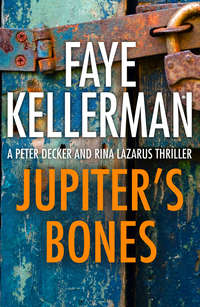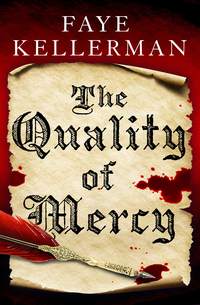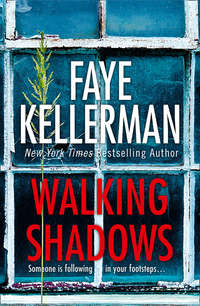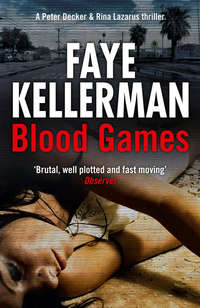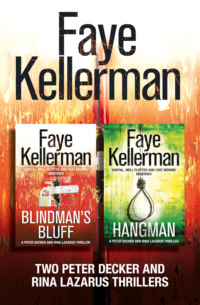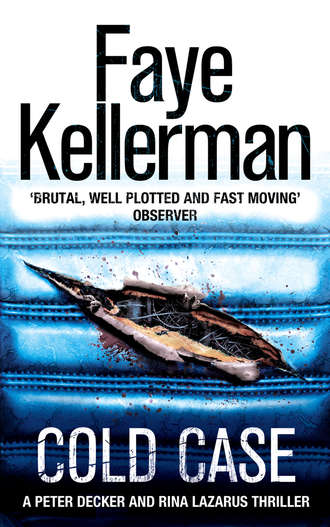
Полная версия
Cold Case
“If I thought this would only take a few minutes, I would let you come in. And if I thought it would help Ben's case, I'd let you come in. But I know what it's about because you've probably talked to the bastard.”
“The bastard?” Oliver asked.
“Don't play coy with me!” She was red with anger. “That man is a liar!”
“So tell us your side, because right now all we've heard is his story.”
“Like you give a solitary damn … oh fuck!” She threw open the door and walked away. The detectives took it as a sign to continue the conversation indoors.
The view from inside was lovely, but Melinda didn't notice. She was too busy pacing back and forth. “The fact that I may have had a little problem a long time ago does not impact upon what I told that tall detective. And it has zero to do with my husband's murder. But of course, you always have to look at the grieving widow, don't you? I stood to gain the most from Ben's death. No matter that I was total train wreck. No matter that I was suicidal. No, you have to look at the widow!”
Marge said, “Why did you call Phil Shriner a bastard?”
“Because that's what he is! I hired him to keep confidences, not to break them!”
“He claims you didn't hire him at all. That he was your excuse for gambling away insurance money—”
“That's a lie!” Melinda pivoted around. “I had a problem, okay? I met Phil from those problem days. The one good thing he did was to get me into GA meetings, but he only did that because he wanted to get into my pants.”
“Did he?” Oliver asked.
“Don't insult me!” Melinda hissed. “I was a compulsive gambler, not a drunk! I was clearheaded and Shriner was a pig.”
Oliver held up the palms of his hands. “We're trying to get a handle on your husband's murder. We're on the same side.”
“That's what the police told me fifteen years ago and I don't believe you any more than I believed them.” Melinda melted into her white sofa. “Incompetent idiots!”
Oliver had no answer for that. He looked to Marge for backup. She exhaled softly and sat next to Melinda on the sofa. “I'm sorry to be opening up old wounds, Mrs. Warren. It must be very painful for you.”
Melinda glared at Marge with moist eyes. “Spare me the amateur psychobabble. I've been to enough therapists to know the empty words from the real thing, okay?”
The room fell silent. Oliver busied himself by staring at the view. Melinda said, “I keep waiting … wondering … when can I move on?” Her eyes softened as tears spilled down her cheeks. “Aren't I entitled to a little happiness?”
“If I were in your shoes, I'd kick us out, saying talk to my lawyer.” Marge shrugged. “I hope you don't do that, though. If we want to find Dr. Little's murderer, we've got to talk to you about Phil Shriner and your gambling problem.”
Oliver felt it was safe to chime in. “We'd like to hear what you have to say since you and Shriner seem to be at odds.”
Marge treaded lightly. “Phil implied that you'd gambled away insurance money and you were too embarrassed to admit it to your folks. So instead you told them that you spent money on a private investigator. Shriner agreed to be your cover.”
Oliver added, “He was quick to admit that he was also a compulsive gambler. And he also implied that it was probably your husband's death that drove you to gambling.”
“Of course his death drove me to gambling!” Melinda cried out. “It did all sorts of weird things to my psyche. Do you think I made it a habit to gamble when Ben was alive?”
Marge said, “So when did gambling become a problem for you?”
“About six months after …” Melinda pulled a box of tissues onto her lap and yanked one from the slot. She blotted her tears. “You have to remember that it wasn't just loneliness, it was fear! The police had no idea who killed Ben, and I kept thinking that there was someone out there who wanted to finish the job by killing my boys and me. I was petrified. I sold the house and moved in with my parents, but that got old very soon. I started going to casinos just to get out. My dad taught me poker when I was five. I was good at it. At first I won money. That was my downfall. If I would have lost right away, I probably wouldn't have returned.”
“How long before you knew that your gambling was out of control?”
“I don't know what Phil told you, but I was never broke. I still had some savings.”
She reached for her purse, pulled out a compact and began to reapply her makeup: powder, blush, lipstick. When she was done, the traces of her tears had vanished.
“But it was embarrassing … throwing away money like that. Phil and I reached a mutually beneficial plan. He would cover for me but only if I threw some money his way to look into Ben's murder. Phil jumped at the agreement. He was in hock up to his eyeballs and was grasping at anything green.”
Marge said, “We'll need to go over your bank records at the time of your husband's murder. If we have your written permission, it'll be easier.”
She was quiet for a while. “If it'll get you off my back, go ahead.”
“To verify that you didn't have gambling problems before your husband's murder.”
Melinda licked her lips. “Not problems. Ben and I went to Vegas, sure. We'd see the shows, we'd gamble … sometimes I'd win, sometime I'd lose. I always enjoyed it, but I didn't feel any compulsion to keep doing it.”
“And once again, you're telling us that the problems happened after the murder.”
“Absolutely. I was a psychological wreck and was given this sudden windfall. I wish insurance wouldn't have been so forthcoming. Time might have helped me be more discerning.”
“Why do you think Shriner suddenly decided to blow your cover?” Oliver asked her.
“Because you're reinvestigating the case and he didn't want to look like a boob to the cops.”
The stories jibed … maybe too well. Marge said, “You said that he agreed to cover to your folks, but only after you agreed to pay him some money. To me, that sounds like blackmail.”
For the first time, Melinda smiled. “I wouldn't go that far … I … he needed money and I was thoroughly disgusted with the police. It would have been nice if he had investigated Ben's murder with a little more zeal, but …” A sigh. “I didn't pay him much. Frankly, I don't see why I should have had to pay him at all. The police should have done their job.”
“How well did you know the primary investigators?” Oliver wanted to know.
“I called a lot at the beginning. Less after Phil started hunting around. In the end, they retired and the case went cold. By the time I recovered from my gambling and my fears and my infinite psychiatric bills, I just wanted to move on with my life.”
“When you called up the investigators, who did you talk to?” Marge asked.
The question momentarily stumped her. Then Melinda said, “Mostly Detective Lamar, I think. I found him more congenial than Detective Vitton.” She looked at her watch. “I'm late to a luncheon and the honoree is a very dear friend. I'd like to go.”
Oliver said, “What would you say if I told you—”
Marge said, “Thank you so much for your time, Mrs. Warren.”
“Not a problem. But please next time, do call.”
Marge stood and signaled Oliver to the door. “We will. Goodbye now.”
As soon as they were outside, Oliver turned on his partner. “Why'd you interrupt me midsentence?”
“Because I didn't want you to tell her about Vitton's suicide until we know more.”
“But I wanted to see how the Ice Queen would react! I haven't ruled her out as a suspect. The murder looked like a hit, and she has a gambling problem. How do you know she didn't whack him for insurance? Or maybe she hired Shriner for the hit—or Vitton and that's why he killed himself.”
“Exactly why I want to dig up more information on her and on Vitton before we drop the news. Things like: What kind of funds did she have before her husband was murdered? Did any money go out shortly after Little's death? Did she know Cal Vitton before Ben died? Let's say we find something on her. The suicide would be a perfect excuse to come back and talk to her. And if we don't find anything on her, why put the woman through more pain by mentioning the suicide?”
Oliver still looked miffed. “I don't like being muscled out of my comfort zone even if you do outrank me.”
“Would it help if I bought you some cookies?”
“Fuck you,” Oliver snapped.
“It was a serious offer.” Marge looked wounded. “Mrs. Grich's. Macadamia nut, white chocolate and coconut. But suit yourself, bud.”
“You think you can mollify me through my stomach?”
“It always worked in the past.”
There was a long pause. “I like dark chocolate.”
“Anything you want, sweetheart.”
RETIRED DETECTIVE ARNOLD Lamar showed up as if he were dressed for a funeral: ill-fitting black suit meant for a bigger man, skinny black tie, and white shirt. His feet were stuffed into scuffed oxfords. His face was drawn, and his eyes were glazed as they scuttled back and forth between Decker and Detective Shirley Redkin from the Simi Valley Police Department. Finally Lamar's eyes landed on Decker, staring at him from across the interview table. “What'd you say to him?”
“What do you mean?”
“Did you set him off or anything?”
Decker didn't take offense. “I told Detective Vitton the same thing I told you. That I wanted to talk to him about the Bennett Little case and get his impressions. If he found that offensive, then I plead guilty.”
Silence.
“I wasn't threatening, just insistent. Can you think of a reason why he'd kill himself?”
“No.”
“You called Vitton before I got hold of him. He told me that much. What was his state of mind?”
“He was Cal.” Lamar shook his head. “Grumpy. After he retired, he didn't want anything to do with LAPD except to cash his pension check. For a while, we kept in contact, but then that fizzled. He didn't give me any indication that he was desperate, but I'm no psychiatrist or anything.”
“What was your conversation about?”
“I told him that LAPD reopened the Little case and you'd be calling him.”
“What did he say to that?”
“He asked what they expected from him. I told him I didn't think they expected anything. They just wanted to hear about the investigation. He grumped and said something like it's a little late in the game for this. In short, he was just being Cal. If I would've thought that there was something wrong, I would have …” He blinked back tears. “Cal hasn't been happy for a while.”
“Women problems?” suggested Shirley Redkin.
Lamar made a conscious effort to shift his eyes from Decker's face to hers. He thought she looked like an Aztec Indian. “The divorce was years ago. At the time, it was a bad one, although at their son's wedding, they were on speaking terms. Two children … both live out of town.”
“Where?” Shirley asked.
“One's in San Francisco, the other lives in Nashville.”
“What do they do?” Decker wanted to know.
“Not police work.” He shook his head. “The Nashville son, Freddy, is a producer of country songs, what ever that means. Cal Junior … well, what can I say. He bats for the other side.”
“Do you mean he's gay?” Shirley asked.
Lamar nodded painfully. “After Cal J came out, Big Cal was never the same.”
“How long ago was this?”
Lamar had to think about it. “Ten years ago, maybe.”
Decker said, “So it wasn't a recent thing that pushed Vitton over the edge?”
“It wasn't recent, but that don't mean it didn't push him over.”
“So why now?” Shirley asked.
“I've been thinking about that nonstop. Maybe it was a combination of things. Reopening a case that was our biggest failure, his son being gay, no steady work, no women in his life. After a while, everything adds up.”
Decker said, “Enough to get him to eat his gun?”
“Cal hadn't been happy for a long time,” Lamar repeated.
“Who is Cal's ex?” Shirley asked him.
“Francine Vitton. Don't ask me where she lives, I have no idea.”
“What about the boys? Do you have a telephone number for them?”
“No, but I'm sure the number's in Cal's directory. He kept in touch with his boys … mostly Freddy, but he was on speaking terms with Cal J. That wasn't always the case.”
“No?”
“Well, you know how it is. When Cal first told his dad, Big Cal wanted nothing to do with him. Cooler heads prevailed later on. They reconciled. I'm sure the boys could tell you where their mother lives.”
Shirley said, “Are you being completely open with us, Detective Lamar? There isn't something in Cal's life that could have driven him to kill himself?”
“If there was, I didn't know about it.”
“Did Cal feel that he gave the Little case one hundred percent?” Decker asked.
Lamar bristled. “That's a loaded question, Lieutenant. When the case remains open, you always feel that there's something more that you can do. But sometimes you just fail. And as you both know, that ain't a good feeling.”
CHAPTER 11
ANUGGET POPPED INTO Decker's mind.
When he had asked Arnie Lamar about Calvin Vitton's sons, the retired detective had responded: The Nashville son, Freddy, is a producer of country songs, what ever that means. Earlier in the day when he had talked to Donatti and asked him about Primo Ekerling, he had said, He's a music producer. What'd he do?
There were tens of thousands of people in the recording industry. It wasn't much of a coincidence, but Decker was alone in an ocean, grabbing at any log that happened to be floating by. As soon as he got into his office, he phoned Lamar. “It's Pete Decker again.”
“What's going on?”
“A quick question about Cal's boys. How old would they be?”
“Freddy's around thirty-five, Cal J's a few years younger. Why are you asking?”
“I like to have a mental picture before I do interviews.”
Lamar paused. “There's more to it than you're lettin' on.”
“Then please tell me what I'm holding back. I can use all the help I can get.”
“Say hello to the Vitton boys for me.”
He cut the line before Decker had a chance to respond. Just as he set the phone down, Marge knocked on the doorjamb. She was with Oliver, and Decker motioned them in. Their mission was to bring him up to date on Melinda Little Warren.
“We want to go over her finances at the time of the murder,” Oliver said. “See if there was any money coming in or out before Little died.”
Marge added, “We know the original detectives went through her bank accounts, but we need to make sure that nothing was overlooked.”
Decker said, “Sounds reasonable enough, but I don't know how much luck you'll have with fifteen-year-old records.”
“We know where she banked,” Oliver said. “Everything was computerized fifteen years ago. I don't think we'll have any problem with it.”
“Did you get her permission?”
“She said she'd sign something.”
“And you still suspect her?” Decker asked.
Oliver said, “She's a compulsive gambler: Little had insurance. If she was in the hole …”
Decker looked at Marge.
“Haven't ruled her out,” she told him.
“How did she react to Cal Vitton's suicide?” Decker asked.
Oliver cocked a thumb in Marge's direction. “She cut me off. The sergeant wants to use the suicide as an excuse in case we want to come back and question her again.”
“Oh …” Decker nodded. “That's good thinking.”
Oliver snapped, “To me, it made more sense to lay it out and see how she reacted.”
“A case could be made for that. But if you're looking through her financials and something comes up, it will be a convenient excuse to see her again. Then as long as you're there, you can ask her about any bank discrepancies.”
Marge grinned. “Oliver, you're not only outranked, you're outvoted.”
Decker said, “I want one of you to look into a couple of things.” He explained to his detectives the weak relationship between Primo Ekerling and Freddy Vitton. “It would be interesting if they knew each other.”
“And what would that prove?” Oliver asked.
“Two men dead within two weeks and both have some kind of tangential association to the Little case.”
“Loo, we don't know that Ekerling has a connection to the Little case.”
“I have to go with Oliver on this one,” Marge said. “I don't see it leading anywhere.”
“At the moment, I'm just like a computer. I amass data and spit back facts, but I offer no opinion.” Decker shrugged. “Just peck around.”
Oliver said, “Doesn't Hollywood have someone in custody on the carjacking?”
“Yes, they do. Two people actually.”
“So what justification do we have throwing in new theories and fucking up their solve?”
“We don't have any justification and yet, I still want to look at the file.”
“So call up your daughter and get it on the sly.”
Decker rolled his eyes. “Good idea, Oliver, I wish I had thought of that.”
THE HOUSE HAD turned into a jewel box: a perfect little bungalow. Converting eight hundred square feet into twelve hundred fifty had produced a two-bedroom, two-and-a-half-bath house with a small nook off the living room that could be sleeping quarters or a TV watching area—its current use. The kids had gone with a Mission turn-of-the-century look that was in keeping with the geography of old L.A. The area was filled with hundred-year-old bungalows as well as a few Victorians. There were also remakes and redos: housing from the fifties to the present.
The best part of the remodel was a new and improved patio overlooking the hillside chockablock with houses cut into the granite. On warm days, the landscape gave the feel of Southern Italy or Spain. It was on this very patio that Decker sat with Cindy, enjoying the spring weather, drinking espresso while taking in the view.
Cindy stretched and looked outward. “It don't get much better than this.”
“No, it does not.” He smiled at his daughter. Her wild red hair was tied back in a ponytail holder, and her skin was smooth and pale with just a hint of blush at the cheeks. She wore cutoff jeans and a baggy T-shirt with flip-flops on her feet. It was a pleasure to see his daughter so relaxed. He said, “The rose garden is spectacular.”
“It's the one thing that Koby insisted that we leave untouched and how right he was.”
“The remodel is just perfect, princess. I know it was a hassle but it couldn't have turned out better.”
“Thanks for all your help, Daddy. We couldn't have done it without you.”
“You're welcome, although I didn't do much.”
“First of all, you put us in contact with Mike Hollander. That was ninety percent of it. Second, you did most of the finished tile work. It came out beautifully.”
“I'm glad you like it.” He finished his espresso. “So now we're even. I tiled the backsplash in your kitchen, you got me the Ekerling file.”
“It's not quid pro quo, Dad.”
“Yeah, you had the harder job.”
“That might be true.” Cindy smiled. “Luckily I inherited your ability to lie glibly and seamlessly.”
He didn't deny the obvious. “What lie did you tell them?”
“It really wasn't a stretch. Being as I was the initial detective on the scene, I just told them that I needed a copy for my records. They weren't even a tad suspicious.”
“Who're the detectives on the case?”
“Rip Garrett and Tito Diaz. Diaz gave me the file. It took me over a half hour to copy it, and the pictures didn't come out so great, but I did the best I could. Anyway, the original file is back where it belongs and you have your copy.”
“I'm grateful to you, Detective Kutiel. It wouldn't be cool to inject myself into their case without a reason.” Decker picked up his coffee to drink and remembered he finished it.
“Would you like another?” Cindy offered.
“Actually, I don't have intentions of sleeping, so why not?”
“Come inside and I'll hand over the file. You can also watch me use my new nifty espresso machine.”
He followed her inside to a petite kitchen, which included a farm sink and an old-fashioned stove. “Wow, this came out great.”
“You say that every time.”
“At least I'm consistent. And it's true. This is simply charming. Unfortunately for me, Rina's getting ideas.”
“Uh-oh.” Cindy put the coffee into the machine.
“Although she has a point. The kitchen is a little dated.”
“It wouldn't take much.”
“Not to you.”
Cindy smiled. “Just tell her it doesn't matter about the shape of the kitchen, what matters is the cook, and in that regard, she has me beat by a mile.”
“You're a good cook.”
“No one is like Rina.”
Decker didn't have a comeback to that. “Would you like to come over Friday night for Shabbos?”
“Uh, what day is it? Tuesday?”
“Yep.”
“I think it would work for me. Let me ask Koby and I'll get back to you.” The coffee started to brew, the steam roaring as it forced the water through the grounds. “Did you clear this with Rina?”
“You've got an open invitation, but I'll clear it with her.”
Cindy handed her father another shot of espresso. “I love this machine. I can even steam milk. It saves a bundle on my outside coffee bills.”
“Yeah, what do they charge now for designer coffee? Something like five dollars for an amount the size of a thimble?” Decker held up the file. “Thanks so much for this. It really, really helps.”
Cindy sized up her father. “I keep waiting for you to lose passion about your cases. It never happens.”
“Some cases get more attention than others. This one has a lot of money riding on a solve.”
“And you think Ekerling has something to do with a fifteen-year-old murder case?”
Decker simply shrugged. He finished his espresso and wiped his mouth on a napkin. “I can't put it off much longer. Traffic's going to be horrible, so I might as well bite the bullet.”
“I'd ask you to stay for dinner, but I think we're meeting some friends to night.”
“No, I have to get back to my wife and your sister, although Hannah's never around anymore. But Rina still loves me.”
“I'm sure Hannah loves you as well.”
“Yeah, I'm sure she does, but at her age, she has a funny way of showing it.”
CHAPTER 12
AFTER WRITING COPIOUS notes on two packs' worth of index cards, Decker had a neat summary of the Primo Ekerling case. He had come away with the following account.
At five-thirty in the afternoon, Ekerling and his brand-new silver 550S Mercedes sedan left his office on San Vicente Boulevard and disappeared into the ether. His initial absence from the world was noticed by his girlfriend, Marilyn Eustis, when she failed to reach Ekerling by phone. She left messages but wasn't particularly wary when he didn't return the calls. He had an eight o'clock dinner meeting that night, and Marilyn figured that they'd meet up at the designated restaurant. Primo could be lax with phone calls, but he was always punctual with his fellow associates and this evening mixed business with pleasure.
At nine in the evening, Ekerling was still a no-show. His associates were miffed, and although Marilyn was concerned, she kept it to herself and made excuses. She knew that Primo must be very much indisposed because this gathering was important. Song-sharing sites had just about rendered multitrack CDs obsolete, and because of this, the state of the recording industry had turned dismal. Companies were loath to record more than a single song per artist, which greatly reduced time in the studio, which in turn greatly reduced the need for record producers. Among the few survivors, the competition was fierce. This particular group of people represented an up-and-coming hip-hop band, and they were reinterviewing Primo for the position of producer for their newest release. The money wasn't terrific but the exposure was, and Marilyn Eustis felt that Ekerling would have prioritized this meeting. At the very least, had he not been able to make it, he would have called.




